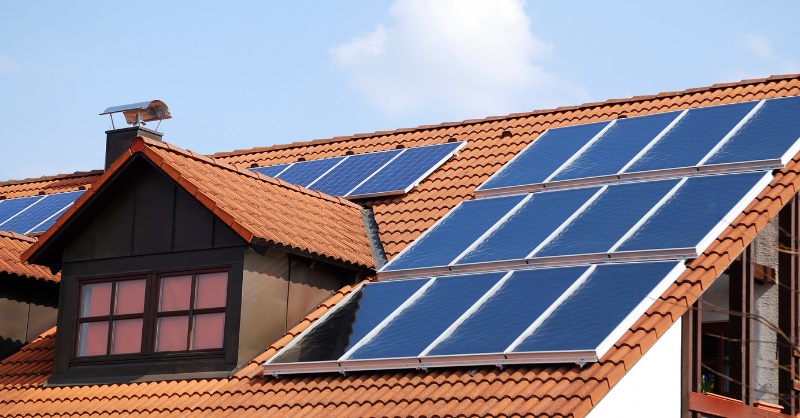Harnessing the Power of the Sun: A Comprehensive Guide to Solar Panel Roofs
Introduction
The shift towards renewable energy has never been more urgent. With climate change and environmental degradation posing significant threats, many homeowners are turning to sustainable solutions like solar panel roofs. These innovative systems not only reduce carbon footprints but also offer substantial financial benefits. This article explores the advantages, installation process, and considerations for adopting solar panel roofs.
The Advantages of Solar Panel Roofs
- Environmental Impact
- Reduction in Greenhouse Gases: Solar energy is a clean, renewable resource that produces no greenhouse gas emissions during operation, drastically reducing the overall carbon footprint of a household.
- Sustainable Energy Source: Unlike fossil fuels, solar energy is abundant and inexhaustible, ensuring a continuous supply of power without depleting natural resources.
- Financial Benefits
- Energy Savings: By generating your own electricity, you can significantly reduce or even eliminate your utility bills.
- Government Incentives: Many governments offer tax credits, rebates, and other incentives to offset the initial costs of solar panel installation.
- Increased Property Value: Homes equipped with solar panels often see an increase in property value, making them a worthwhile investment for the future.
- Energy Independence
- Reliability: With solar panels, you are less reliant on the grid, providing a reliable source of energy during power outages.
- Cost Predictability: Solar energy systems offer predictability in energy costs, shielding you from fluctuating electricity prices.
The Installation Process
- Assessment and Planning
- Energy Needs Analysis: Determine your household's energy requirements to size the solar panel system appropriately.
- Roof Inspection: Assess the condition and orientation of your roof to ensure it can support the solar panels and receive adequate sunlight.
- Choosing the Right System
- Types of Solar Panels: There are several types of solar panels, including monocrystalline, polycrystalline, and thin-film. Each type has its own efficiency rates and costs.
- Inverters: Decide on the type of inverter (string, microinverter, or power optimizer) to convert the solar energy into usable electricity for your home.
- Installation
- Professional Installation: Hire certified professionals to ensure that the panels are installed correctly and safely.
- Mounting and Wiring: The solar panels are mounted on your roof and connected to an inverter through wiring. This process includes securing the panels and integrating them with your existing electrical system.
- Inspection and Activation: After installation, the system is inspected for compliance with local regulations and safety standards. Once approved, the system is activated and begins generating electricity.
Considerations and Challenges
- Initial Costs
- Upfront Investment: While the cost of solar panels has decreased over the years, the initial investment can still be significant. However, financing options and government incentives can alleviate some of this burden.
- Maintenance
- Regular Cleaning: To maintain efficiency, solar panels require periodic cleaning to remove dirt, leaves, and other debris.
- Monitoring: It’s essential to monitor the system’s performance to detect and address any issues promptly.
- Roof Suitability
- Structural Integrity: Your roof must be in good condition to support the weight of the solar panels.
- Sunlight Exposure: The roof should have minimal shading and a favorable orientation to maximize sunlight exposure.
- Local Regulations
- Building Codes and Permits: Ensure compliance with local building codes and obtain necessary permits before installation.
- Homeowner Association Rules: Check for any restrictions imposed by homeowner associations that may affect your solar panel installation.
Conclusion
Adopting solar panel roofs is a forward-thinking decision that offers numerous environmental, financial, and personal benefits. While the initial investment and installation process require careful consideration and planning, the long-term rewards are substantial. By harnessing the power of the sun, you not only contribute to a more sustainable future but also gain energy independence and financial savings. As technology advances and solar energy becomes more accessible, there has never been a better time to invest in a solar panel roof.





Comments